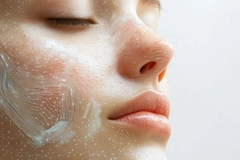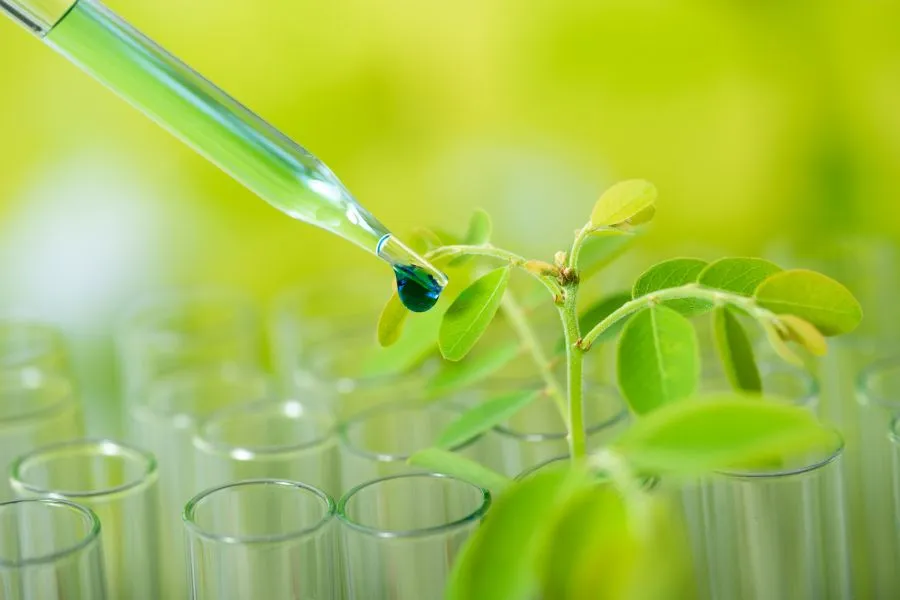Lubrizol on harnessing biotechnology to deliver future cosmetics
Key takeaways
- Biotechnology is transforming cosmetic ingredient development by enabling highly targeted, sustainable, and scalable bioactive production.
- Extremophile microorganisms and advanced fermentation deliver potent, multifunctional ingredients.
- The next generation of biotech beauty will be driven by AI, metabolomics, and digital technologies.

Lubrizol says the next generation of biotech beauty ingredients will be defined by breakthroughs in advanced biotechnological techniques and the integration of digital technologies.
The specialty chemical company’s research shows that extremophiles — microorganisms thriving in harsh environments such as Antarctic ice or hypersaline lakes — offer unique molecules for skin protection, hydration, and regeneration.
Through advanced fermentation, these compounds are tailored by the microorganism’s environmental adaptations and can deliver product efficacy and support multifunctional skin benefits.
Bianca McCarthy, global strategic marketing manager, Active Ingredients at Lubrizol, tells Personal Care Insights about how cosmetic ingredient innovation is being redefined by advances in biotechnology.
Lubrizol recently invested US$10 million to expand its fermentation production capacity by five times at its Center of Skin Care Excellence in Gavà, Spain. The increased fermentation capacity positions it to enhance manufacturing flexibility, enabling the company to better adapt to both global and regional needs and deliver innovations that meet consumer expectations.
How is biotechnology reshaping the development of cosmetic ingredients?
McCarthy: Biotechnology is fundamentally reshaping the development of cosmetic ingredients by enabling the creation of novel, high-performance actives through advanced microbial fermentation and precision bioprocessing.
 Precision fermentation ensures consistent ingredient quality. Lubrizol, with over 25 years of expertise in biotech active ingredients, exemplifies this shift by leveraging proprietary fermentation platforms and a unique microorganism library to isolate rare, stress-adapted microorganisms from diverse environments.
Precision fermentation ensures consistent ingredient quality. Lubrizol, with over 25 years of expertise in biotech active ingredients, exemplifies this shift by leveraging proprietary fermentation platforms and a unique microorganism library to isolate rare, stress-adapted microorganisms from diverse environments.
This approach delivers significant advantages over traditional sourcing: environmental impact is minimized, as ingredients are produced in controlled lab settings using renewable raw materials, eliminating ongoing harvesting and preserving biodiversity.
Ingredient diversity is greatly expanded, with stress-adapted microbes yielding a wide array of bioactive compounds tailored for multifunctional skin benefits. Consistency is ensured through batch-controlled fermentation, resulting in high purity and reproducibility, unlike the variability seen with botanicals. Finally, scalability is a major strength; industrial fermentation allows rapid, reliable scale-up to meet market demand, unconstrained by crop cycles or geographic limitations.
Together, these advantages position biotechnology as a sustainable, innovative, and reliable approach for developing next-generation cosmetic ingredients.
How does biotechnology contribute to the beauty industry’s sustainability goals?
McCarthy: Microorganisms are not harvested from nature. At Lubrizol, microorganisms are isolated once and then reproduced in controlled lab environments, eliminating ongoing extraction from natural habitats and preserving biodiversity.
Lubrizol biotechnology uses renewable carbon sources, such as sugars, and typically requires only water as a solvent, minimizing environmental impact. We exclusively use non-pathogenic microorganisms, and the end product is GMO-free. The solutions are also biodegradable, facilitated by nature.
With Lubrizol biotechnology, approximately less than 0.005 hectares of arable land are needed to generate one metric ton of a biotech active ingredient, compared to much higher land use for conventional botanicals. There is also low land usage with almost no competition with agricultural land.
How are brands communicating the concept of “biotech beauty” to consumers?
McCarthy: Brands are increasingly communicating the concept of ‘biotech beauty’ by highlighting the remarkable benefits of extremophile microorganisms and the unique, complex fermentation mixtures they produce. These microorganisms, sourced from environments such as Antarctic glaciers, deep-sea vents, and thermal springs, have evolved to survive extreme conditions, resulting in the production of specialized blends of peptides, polysaccharides, lipids, and exosomes.
Through advanced fermentation, these compounds are tailored by the microorganism’s environmental adaptations and often act synergistically, delivering enhanced efficacy and supporting multifunctional benefits, including anti-inflammatory, anti-aging, and microbiome-balancing effects.
By sharing stories of scientific discovery and the natural resilience of these microbes, brands help consumers understand that biotech beauty harnesses the best of nature’s ingenuity, creating ingredients that are not only ‘natural’ in origin but also optimized for superior skin performance, consistency, and sustainability. This approach reassures consumers that biotechnology can deliver results that match or exceed traditional natural ingredients, while also supporting environmental stewardship and innovation. Researchers analyze stress-adapted microorganisms.
Researchers analyze stress-adapted microorganisms.
What breakthroughs or applications do you believe will define the next generation of biotech beauty ingredients?
McCarthy: The next generation of biotech beauty ingredients will be defined by breakthroughs in advanced biotechnological techniques and the integration of digital technologies. The convergence of metabolomics and AI will help us identify the complex, nature-identical blends of peptides, polysaccharides, lipids, and exosomes, which will allow for rapid identification of hero molecules. Engineered strains may support the optimized production of these unique bioactives.
The industry will also move more toward using in vitro and in vivo assays, computer vision, and deep learning. This ensures efficacy and safety, while compelling origin storytelling differentiates brands and builds consumer trust.
As these technologies evolve, biotech beauty will deliver faster innovation, targeted skin benefits, and authentic narratives, setting new standards for performance and transparency in personal care.
Overall, biotechnology offers innovation opportunities for the development and industrialization of new ingredients with very low environmental impact.













